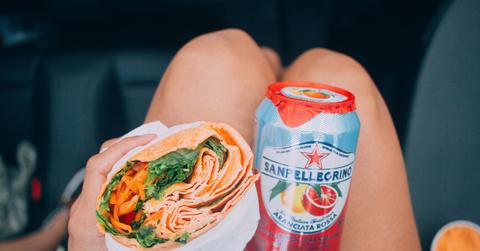Supermarkets In UK Add New Bottle Deposit Return On Recyclables
Two supermarkets in the United Kingdom will be adding a bottle deposit return system, Iceland and Co-op. The retailers are helping to push a recommendation by Greenpeace to recycle plastics as their usage level continues to skyrocket.
Updated May 26 2019, 2:59 p.m. ET
Iceland and Co-op supermarkets in the United Kingdom are poised to initiate a new bottle return program for plastics in order to tackle pollution, according to a survey released by Greenpeace. With plastic use continuing to rise, initiating a monetary incentive for recycling the material holds significant promise for keeping the material out of landfills.
The plastic redemption program would function like any other bottle deposit.
In the proposed program, deposit fees would be added onto plastic bottles at time of purchase. When bottles get returned, customers would receive their deposits back.
If you regularly purchase a gallon of milk and it comes with a bottle return, you could bring back your empty bottle each time you buy a new gallon. It's an easy way to remember to return recyclables; and functions best for people who often shop at the same store or buy a lot of repeat purchases.
Only 91% of plastics are recycled.
One million plastic bottles are purchased every minute around the world—yet only 91 percent of plastic gets recycled globally. With pollution continuing harm our oceans, some argue that this buildup is on the same level as climate change.
Statistics like this are translating into growing pressure for government programs to be adopted throughout England, Wales, and other countries throughout the world.
The United States is proof that deposit laws increase rates of recycling.
Ten states in the U.S. have adopted deposit laws for various cans and bottles varying in cost from 5 to 10 cents.
There has been some pushback with repealed legislation in Delaware that did away with its additional deposits back in 2010 and multiple states failing to pass their own laws. However, recycling has significantly increased in states that have added deposits.
Michigan has the highest general deposit of 10 cents per can or bottle—and a recycling rate between 1990 and 2008 of 97 percent. On average, up to 64 percent of roadside litter is off the streets in these 10 states and they also have a rate of recycling 70 percent of their beverage containers. In comparison, the rest of the United States sits at just 33 percent.
On a worldwide scale, countries that have added a bottle return scheme has seen an increase in over 30 percent recycling. Richard Walker, Iceland Foods’ Director of Sustainability, tells The Guardian that Norway’s addition “has led to 96 percent of all bottles being returned.” He believes that failure to significantly reduce the amount of plastic waste cannot continue, and many share that sentiment.
Recycling incentives reduce landfill waste while also protecting marine life.
“The Co-op is in favor of creating a deposit return scheme which increases the overall recycling of packaging and significantly reduces litter and importantly helps tackle marine pollution,” Jo Whitfield, retail chief executive of the Co-op, told The Guardian.
UK government officials have already considered adding a tax to single-use plastic items just last month. Earlier in the year, they were on the same page with the Greenpeace recommendation to add a deposit that could be obtained by customers that bring in their eligible, recyclable products. They’re expected to add a tax hike for traditional diesel vehicles while investing further in the electric vehicle infrastructure.
